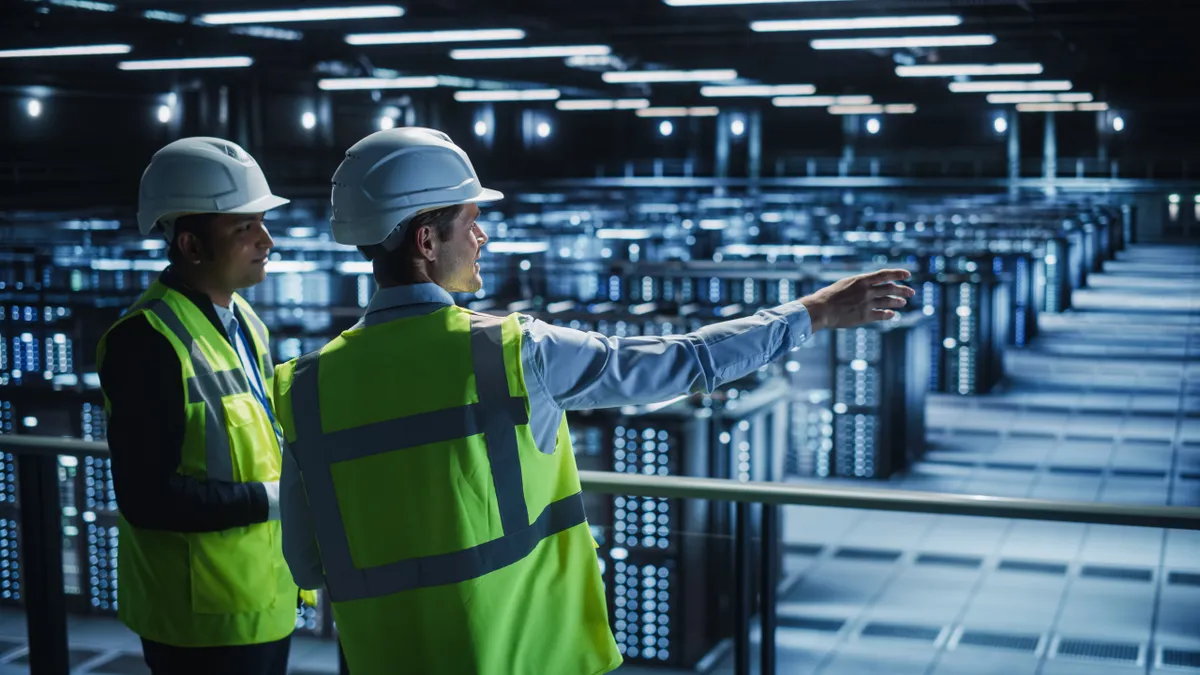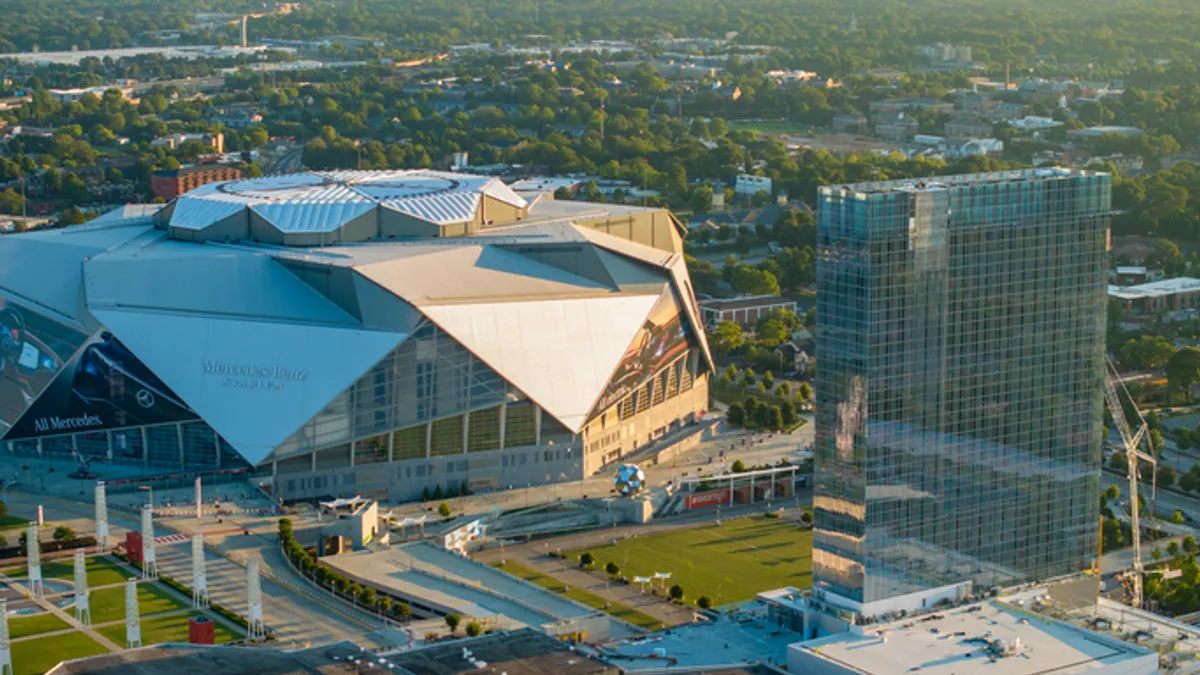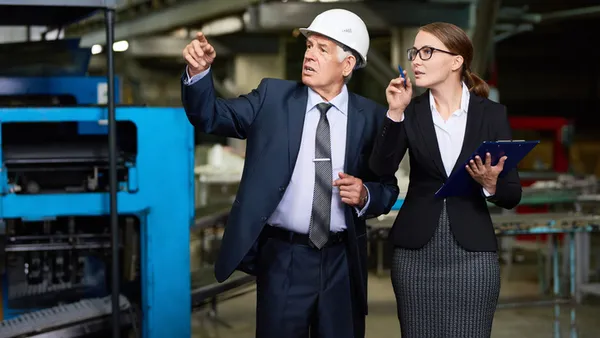Dive Brief:
-
Modine’s data center segment revenue surged 176% in the third quarter of its 2025 fiscal year compared with that period in FY24 amid growing interest in new coolant distribution units from hyperscale and colocation customers, the Wisconsin-based heat transfer systems provider reported Wednesday.
-
The rise of more efficient AI models such as DeepSeek may accelerate AI adoption and boost future returns on data center investments, Modine President and CEO Neil Brinker said on the company’s earnings call.
-
Separately, Modine expects “a lot of chaos” across markets as customers navigate business risks associated with U.S. tariffs on Chinese goods and now-deferred tariffs on Canadian and Mexican imports, Chief Financial Officer Mick Lucareli said on the call. By renegotiating supplier contracts, increasing customer prices and re-sourcing products as needed, however, the company believes it will be able to mitigate these risks, he said.
Dive Insight:
Data center sales in Q3 drove 42% year-over-year growth in Modine’s climate solutions business, which includes its data centers, HVAC and refrigeration and heat transfer products segments, according to the company’s Q3 earnings report. The segment’s sales reached $360.8 million in the quarter, offsetting declines in its performance technologies business, per its earnings presentation.
Modine saw organic growth from North American colocation data centers and schools while benefiting from “increased manufacturing capacity and strong customer relationships” following the 2024 acquisition of air handling manufacturer Scott Springfield, the company said. The HVAC and refrigeration segment net sales grew 15% year over year — driven by indoor air quality sales from the acquisition — while heat transfer products net sales shrank 13%, per the earnings presentation.
Heat transfer product sales fell amid softening demand in Europe and a large HVAC customer’s recent decision to insource equipment, Lucareli said.
The data center demand outlook remains strong despite the release last month of DeepSeek’s radically more efficient AI model, Brinker said.
“We've talked to our customers, and they've assured us this does not change any of their build schedules over the next couple of years. They don’t think it’ll be a slowdown for them,” Brinker said.
As the data center market grows, Modine sees its service in the sector as a differentiator in key U.S. markets, including Atlanta, Seattle and Northern Virginia, Brinker said. Modine pioneered its service model in the United Kingdom, where it has as many as 100 technicians serving the London market, he added.
“We can provide startup installation,” he said. “We can do proactive maintenance, reactive maintenance — all the things that they're going to need so that we can stay close to our customers and we can help them real time.”
Modine faces headwinds from unfavorable foreign exchange trends and tariffs on goods imported from China, Canada and Mexico, company executives said on the call. Earlier this month, President Donald Trump announced, and then deferred for 30 days, a 25% tariff on most imports from Mexico and Canada. The president also placed an additional 10% tariff on most Chinese imports — some of which were already subject to tariffs imposed during the Biden and first Trump administrations.
Modine’s climate solutions business has exposure to Mexico and Canada, “but the vast majority of those sales are covered through commercial agreements with the ability to pass through tariffs to customers,” Lucareli said. The picture is similar for Modine’s performance technologies business, which operates a manufacturing facility in Mexico, he added.
Overall, less than 10% of Modine’s annual supply chain spend is subject to the proposed tariffs, Lucareli said. The company’s experience in “dealing with large raw material price swings, as we’ve seen over the years in copper, aluminum and steel,” will help it manage any fallout, he said.












